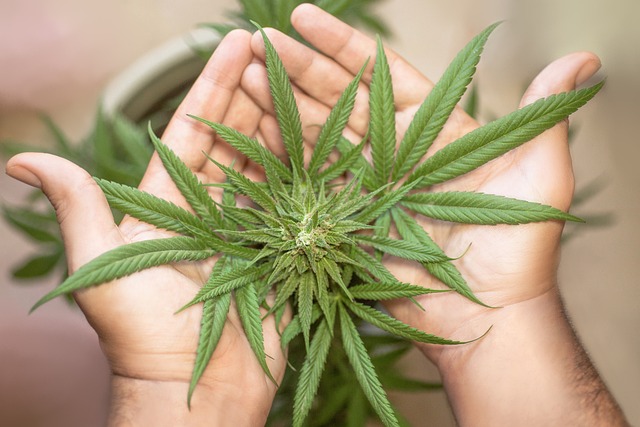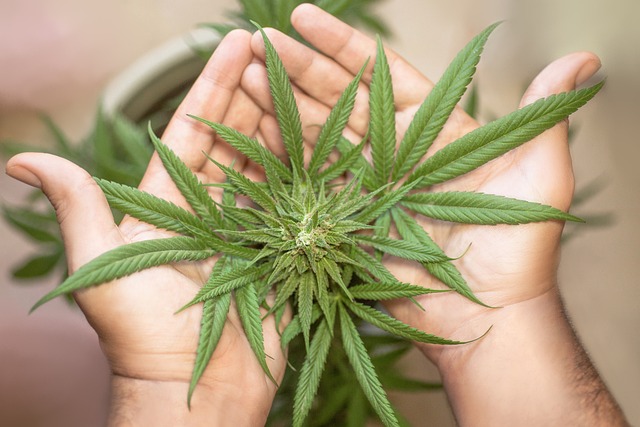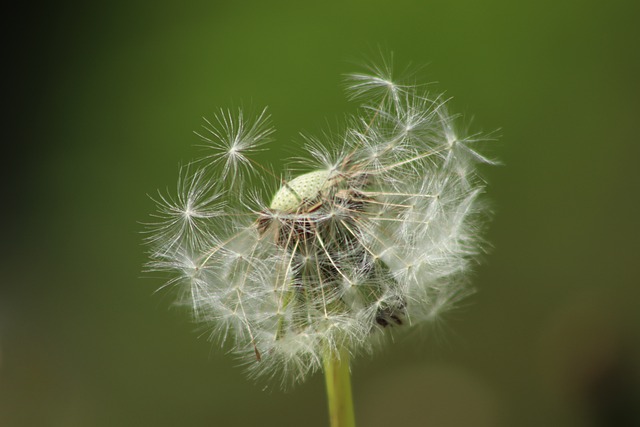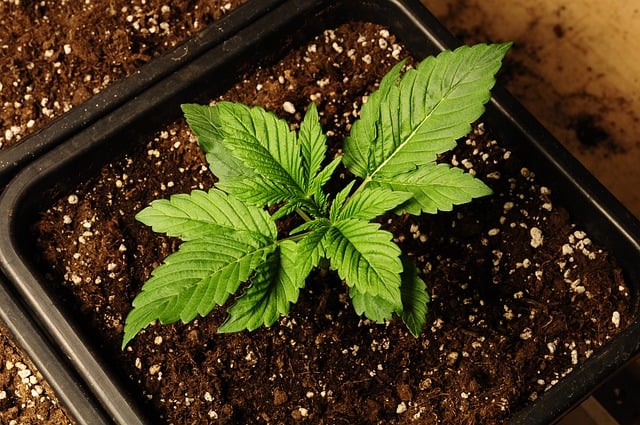2023 has seen a surge in interest around THCA (tetrahydrocannabinolic acid), a non-psychoactive cannabinoid found naturally in raw cannabis plants. In Oregon, THCA's legal status is distinct due to its potential health benefits, including anti-inflammatory, analgesic, and neuroprotective effects, which are drawing attention for medical and wellness use. Oregon's progressive legislation allows for the consumption of THCA flower legally under both medical and recreational cannabis programs, with regulations set by the Oregon Health Authority's Oregon Medical Marijuana Program (OMMMP) and the Oregon Liquor Control Commission (OLCC). Consumers can possess up to 24 ounces of usable marijuana under OMMMP or one ounce of cannabis flower and 16 ounces in solid root form under the OLCC's recreational market. THCA's legal status is clear but requires careful navigation of state and local laws, with hemp-derived THCA permitted so long as it contains less than 0.3% THC on a dry weight basis. As research into THCA continues to grow, consumers are advised to consult healthcare professionals and stay informed about the evolving legal landscape surrounding this cannabinoid.
Explore the nuanced landscape of THCA flower, a cannabinoid gaining prominence within the wellness and medical communities, particularly in Oregon. As we delve into its potential benefits and the legalities surrounding its use, it’s crucial to understand the distinct properties of THCA and how they differ from other cannabinoids. This article navigates through the various facets of THCA flower, from its legal status in Oregon to the scientific research backing its therapeutic effects. We’ll provide insights into quality assurance, dosage, and the intricacies of decarboxylation, ensuring you’re well-equipped to make informed decisions about incorporating THCA flower into your health routine. Join us as we unravel the entourage effect and offer guidance on safely sourcing this cannabinoid in Oregon’s thriving market.
- Understanding THCA Flower and Its Legal Status in Oregon
- The Emergence of THCA as a Prominent Cannabinoid
- THCA Flower: Potential Benefits and Uses
- THCA Legal Considerations in Oregon
- Differences Between THCA and Other Cannabinoids
- Safety and Side Effects of THCA Flower Consumption
Understanding THCA Flower and Its Legal Status in Oregon

In recent years, there has been a growing interest in the therapeutic potential of cannabinoids, with Tetrahydrocannabinolic Acid (THCA) gaining particular attention. THCA is the non-psychoactive precursor to THC, the primary psychoactive component of cannabis. As research unfolds, many are exploring the benefits of THCA flower, particularly for its reported anti-inflammatory and pain-relieving properties. In Oregon, a state known for its progressive stance on cannabis legislation, the legal status of THCA flower is distinct from its psychoactive counterpart. While THC products are regulated under Oregon’s Recreational Marijuana Program, THCA flowers fall into a gray area since they can be derived from hemp and are not intoxicating in the same way as THC. This distinction has led to a nuanced regulatory environment where the legality of THCA flower is often tied to its source—whether it originates from hemp or marijuana. Consumers and businesses in Oregon must navigate this complex legal landscape, as federal laws under the Farm Bill classify hemp-derived products, including THCA flower, as legal, provided they contain less than 0.3% THC by dry weight. However, state regulations may vary, and it is essential for individuals to stay informed about the evolving legal standards surrounding THCA flower in Oregon.
The Emergence of THCA as a Prominent Cannabinoid

The non-psychoactive cannabinoid, THCA or tetrahydrocannabinolic acid, has recently garnered attention in both scientific and consumer circles due to its potential health benefits. Found abundantly in raw cannabis plants, THCA undergoes decarboxylation to become THC, the primary psychoactive component of cannabis, when heated. However, THCA itself possesses a distinct profile with various therapeutic properties that are being explored. In Oregon, where regulations have been more lenient towards cannabis research and use, THCA has emerged as a subject of considerable interest, with studies focusing on its potential analgesic, anti-inflammatory, and neuroprotective effects. The legal landscape in Oregon has facilitated the cultivation and study of THCA-rich hemp strains, allowing for a deeper understanding of this cannabinoid’s properties and its applications. As such, the emergence of THCA as a prominent cannabinoid is not only a reflection of scientific curiosity but also a response to the growing demand for alternative wellness solutions that are legal under Oregon’s progressive legislation. Consumers in Oregon are increasingly turning to THCA flower, either in its raw form or through derivative products, to harness its potential wellness benefits, positioning Oregon at the forefront of THCA research and market development.
THCA Flower: Potential Benefits and Uses

THCA, or tetrahydrocannabinolic acid, is a non-psychoactive cannabinoid found in the Cannabis sativa plant that retains its psychoactive properties when heated. As of the knowledge cutoff in 2023, THCA flower is recognized as legal in Oregon under state law for medical and adult recreational use. This legality has paved the way for extensive research into its potential health benefits, which are gaining attention from both scientific communities and consumers interested in cannabis derivatives.
Medical researchers have explored various therapeutic properties of THCA, suggesting it may offer relief for a range of conditions. These potential benefits include anti-inflammatory, neuroprotective, and analgesic effects, which could make THCA flower a valuable addition to natural medicine regimens. Users report its efficacy in alleviating pain, reducing anxiety, and improving sleep quality. Furthermore, due to Oregon’s supportive legal framework, consumers have access to THCA flower products that are tested for safety and potency, ensuring a consistent and reliable experience for those seeking its wellness benefits. The versatility of THCA flower allows it to be consumed in various forms, including smoking, vaporizing, or incorporating it into edibles, offering a wide range of options for consumers looking to explore its potential effects.
THCA Legal Considerations in Oregon

In Oregon, the legal landscape concerning cannabinoids such as THCA is subject to the state’s regulatory framework and the evolving understanding of cannabis compounds. As of the knowledge cutoff in 2023, THCa, the non-psychoactive precursor to THC found in raw cannabis plants, has garnered attention for its potential wellness benefits. Under Oregon state law, cannabis and related products are regulated under the Oregon Health Authority’s Oregon Medical Marijuana Program (OMMMP) and the Oregon Liquor Control Commission (OLCC). While OMMMP patients may possess up to 24 ounces of usable marijuana, including raw cannabis flower, for personal medical use, it is crucial for consumers to be aware that processed THC products are subject to different possession limits. The OLCC oversees the recreational market, where possession is limited to one ounce of cannabis flower and 16 ounces in solid root form. It’s essential for individuals to understand these distinctions, as they pertain not only to possession but also to the sale and distribution of THCA-rich products within the state’s legal framework. Consumers looking to explore THCA products in Oregon must do so within the confines of state law, whether for medicinal purposes under the OMMMP or within the recreational market regulated by the OLCC. Always ensure compliance with local ordinances as well, as they may have additional restrictions or permissive guidelines regarding cannabis and its derivatives.
Differences Between THCA and Other Cannabinoids

Delta-9-tetrahydrocannabinolic acid (THCA) is a non-psychoactive cannabinoid found in raw or uncured cannabis flowers, which, when heated, converts to the more well-known psychoactive compound delta-9-tetrahydrocannabinol (THC). Unlike THC, THCA is legal in certain jurisdictions, such as Oregon within the United States, provided it is derived from hemp and contains less than 0.3% THC on a dry weight basis. THCA’s chemical structure is similar to that of THC, with the key difference being the absence of a cyclic carbon ring, which accounts for THC’s psychoactive properties. This distinction means that THCA interacts with the body’s endocannabinoid system in a different manner than its decarboxylated counterpart, potentially offering unique therapeutic benefits without the ‘high’ associated with THC. In Oregon, where the legal landscape is relatively progressive, THCA has gained attention for its potential wellness properties, which include anti-inflammatory, analgesic, and neuroprotective effects. Research is ongoing to fully understand the nuanced effects of THCA compared to other cannabinoids like CBD (cannabidiol), CBN (cannabinol), and CBG (cannabigerol), each with its own distinct profile and potential applications in health and wellness. The varying legal statuses across different regions make it crucial for consumers to be aware of the specific laws governing cannabinoids within their locality, as the landscape continues to evolve and regulations become more nuanced.
Safety and Side Effects of THCA Flower Consumption

THCA, or tetrahydrocannabinolic acid, is a non-psychoactive compound found in the Cannabis sativa plant that is proposed to be the precursor to THC, the primary psychoactive element in cannabis. As legalization and research into cannabis derivatives expand, THCA has garnered attention for its potential therapeutic properties. In states like Oregon, where THCA flower is legally permissible under certain regulations, consumers are exploring its effects. While THCA itself is not psychoactive, it’s believed to have a range of benefits including anti-inflammatory and analgesic properties. However, despite growing interest in THCA flower, the safety profile and potential side effects require careful consideration.
Clinical trials and anecdotal evidence suggest that THCA flower may cause mild side effects, such as dry mouth and red eyes, which are common with cannabis consumption. These effects tend to be temporary and less intense than those associated with THC. Moreover, individuals with certain health conditions or those taking other medications should exercise caution, as interactions may occur. It’s also important for users to be aware that the legality of THCA flower can vary within states like Oregon; while it may be legal statewide, local ordinances could restrict its use and sale. As with any new supplement or medication, consumers are advised to consult with healthcare professionals before incorporating THCA flower into their wellness routines, especially considering the limited long-term studies on its effects. Safety and appropriate dosing are paramount for an optimal and safe experience with THCA flower.
In conclusion, the exploration into THCA flower has shed light on its potential within the cannabinoid spectrum and its unique position under the law in Oregon, where it is legally permissible. While THCA flower shares many therapeutic and beneficial properties with other cannabinoids, understanding its distinct effects, particularly when consumed directly rather than converted into other compounds like THC, is crucial for consumers making informed choices. As outlined, THCA’s legal status in Oregon presents a clear framework for its use, ensuring that individuals can access it responsibly. However, it is imperative to approach THCA consumption with caution, as with any substance, due to its side effects and potential interactions within the body. Users are encouraged to consult healthcare professionals and adhere to state regulations when considering THCA flower for their wellness routine. With ongoing research into its properties, the understanding of THCA and its applications is likely to evolve, reinforcing the importance of staying informed on its legal standing in Oregon.
